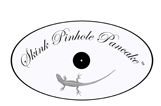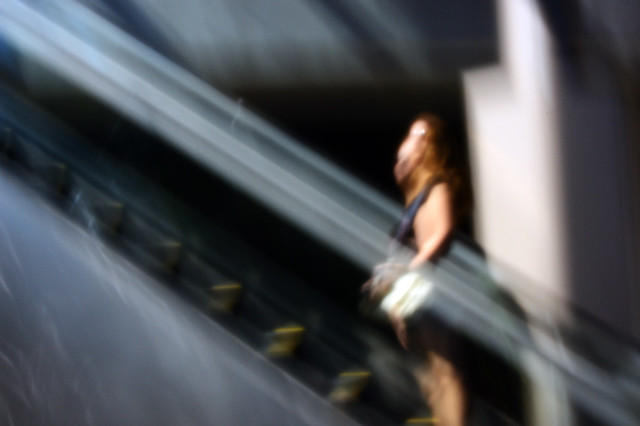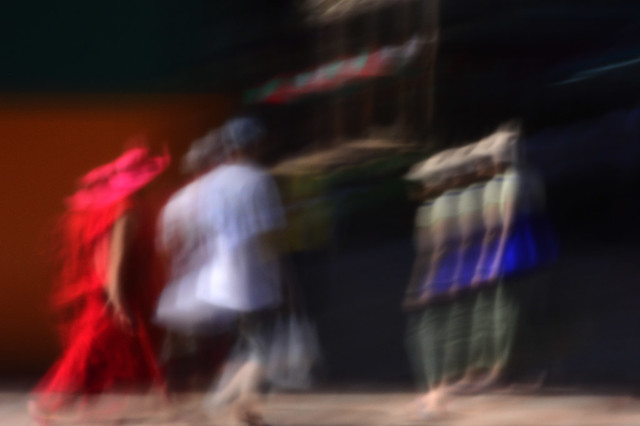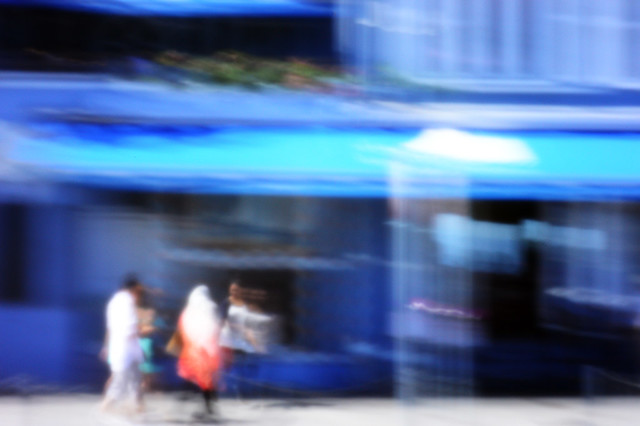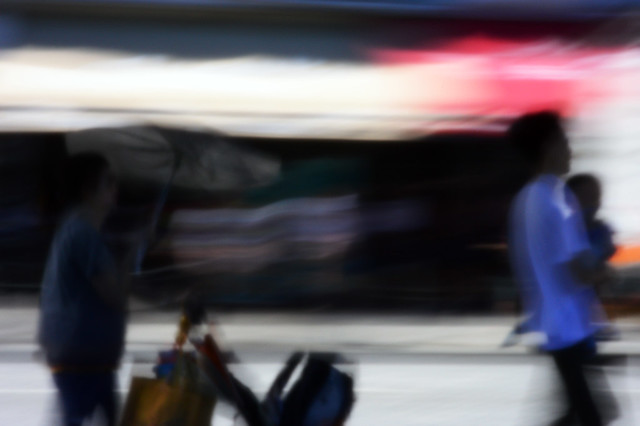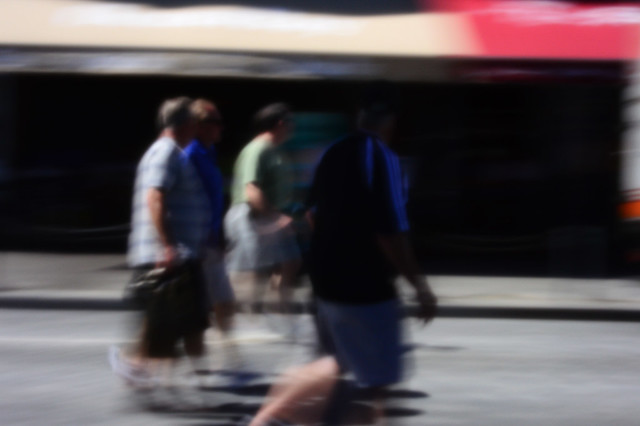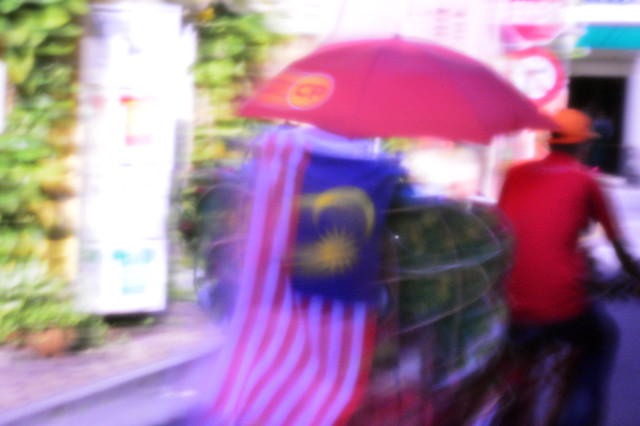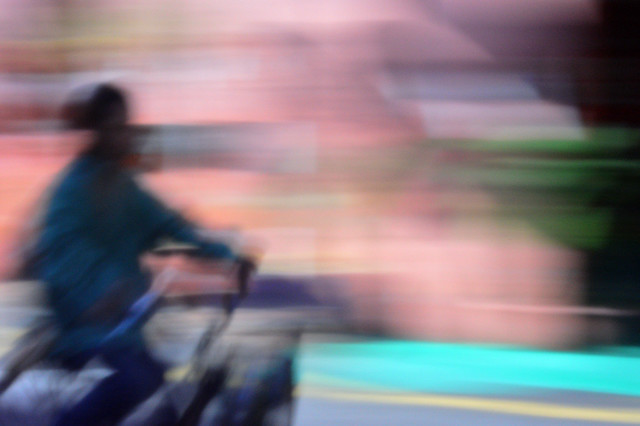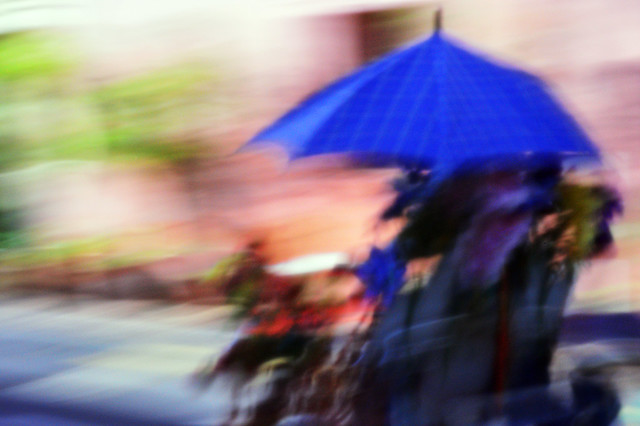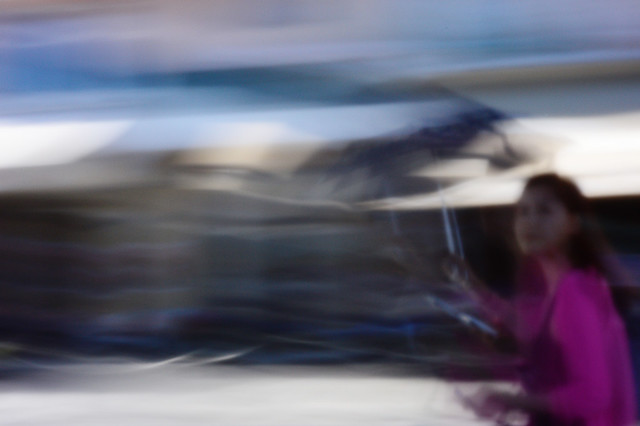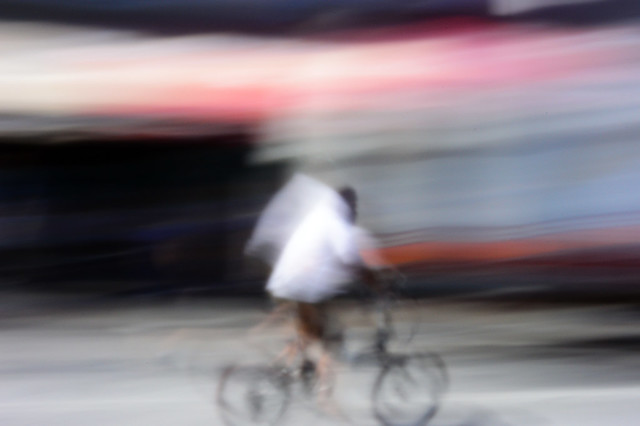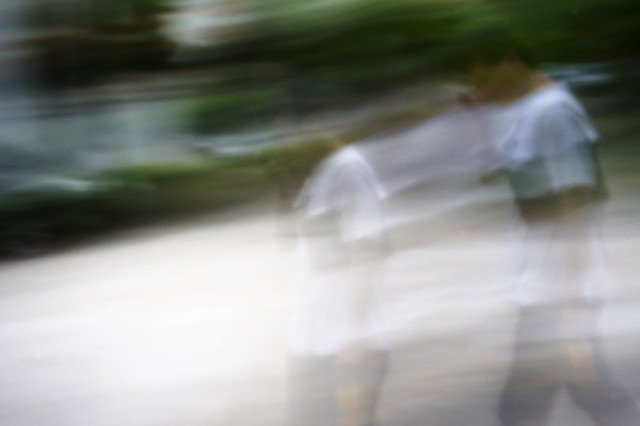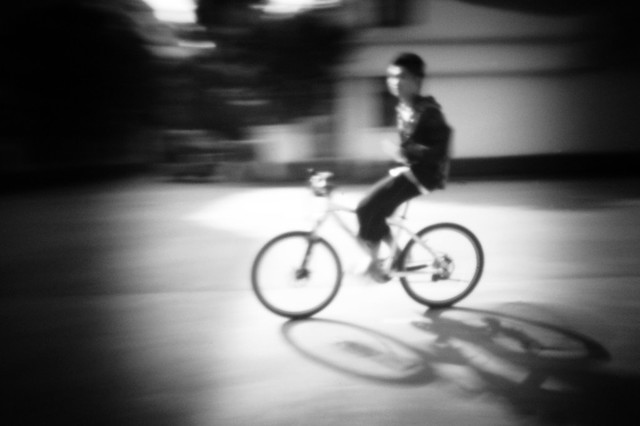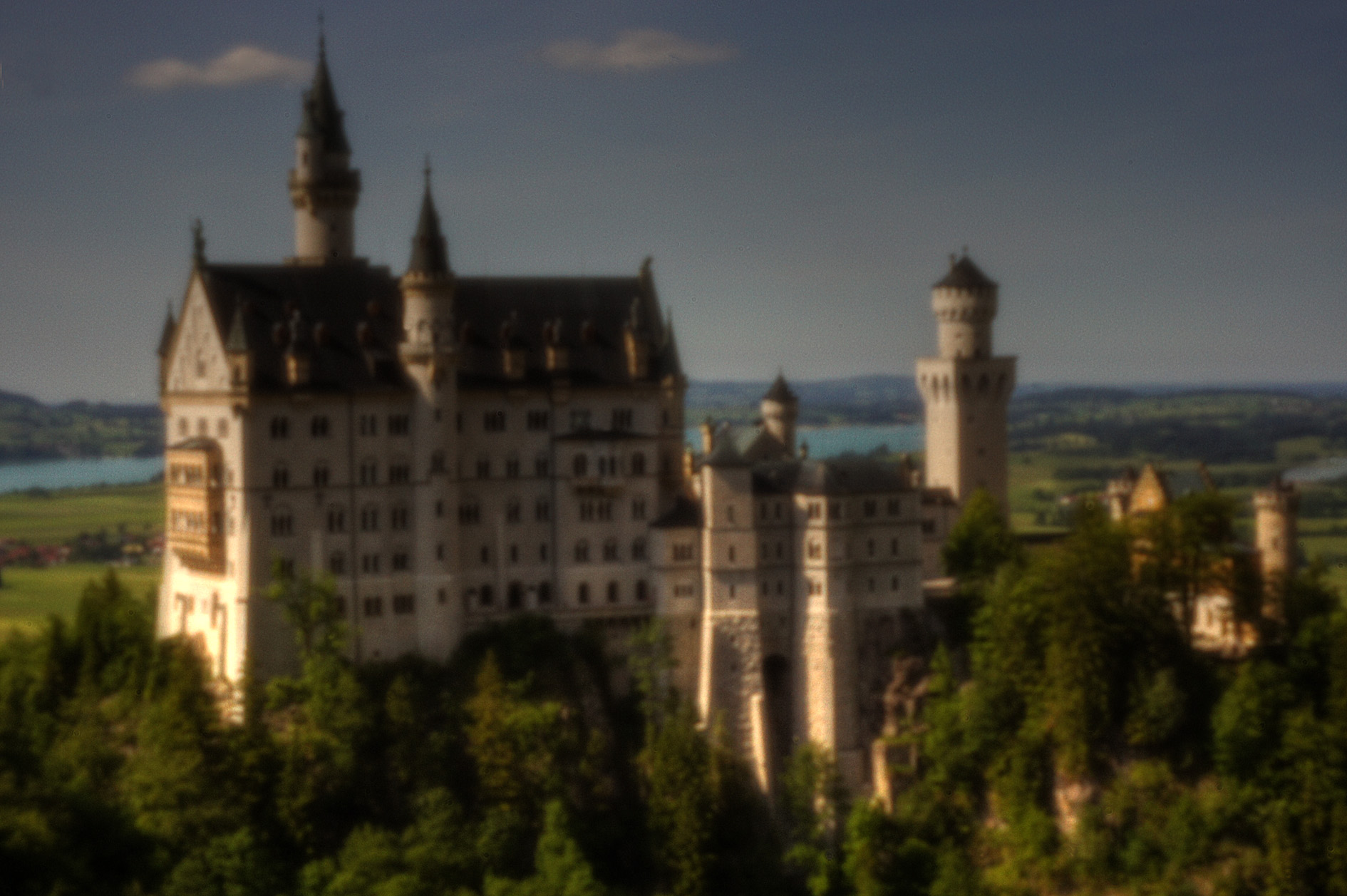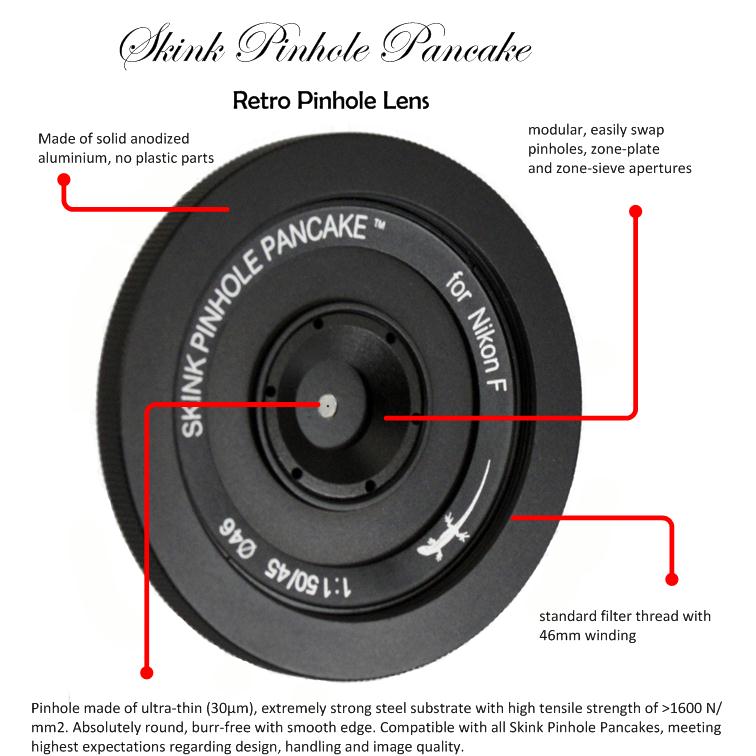Mit Bewegung experimentieren / Playing with Movement
Mit Bewegung experimentieren
Sie sind jetzt glücklicher Besitzer einer Lochkamera und überlegen was Sie nun damit anfangen wollen. Die meisten Leute versuchen zunächst, möglichst scharfe Bilder zu machen, dazu perfekt belichtet. Mit einer Digitalkamera ist das kein Problem. Sie stellen die Kamera auf manuell, ISO100, 1 Sekunde Belichtung und knipsen ihr erstes Lochkamerabild bei Sonnenschein. Zu hell ? Kein Problem, das nächste Bild wird dann eben etwas kürzer belichtet. Um die maximale Bildschärfe zu bekommen, stellen Sie die Kamera auf ein Stativ. So einfach ist der Einstieg in die Lochkamerafotografie. Wenn Sie ein Skink Pinhole Pancake Objektiv verwenden werden Sie schnell die Qualität unserer Lochblenden zu schätzen lernen. Nachdem Sie sich mit den Grundlagen der Lochkamerafotografie vertraut gemacht haben, auf zu neuen bewegten Projekten!
Durch die relativ langen Belichtungszeiten kommt bei der Lochkamerafotografie die Komponente “Zeit” mit ins Bild. Entweder, weil sich während der Aufnahme vor dem Sucher etwas bewegt oder weil die Kamera durch Mitziehen oder Panning dem Motiv folgt. Panning mit der Lochkamera erfordert zwar etwas Übung, aber es genügt, dem Motiv mit der richtigen Geschwindigkeit zu folgen. Die unbegrenzte Schärfentiefe der Lochblende macht es, im Vergleich zur Glasoptik, etwas einfacher Schärfe mit Unschärfe im Bild kreativ zu verbinden.
Playing with Movement
Now you are a happy owner of a pinhole camera and wonder what to do with it. Initially most people would try to make as sharp as possible photos, and perfectly exposed. There shouldn’t be a problem to achieve this with a digital camera. Set your camera to manual mode, ISO100, 1 second exposure time and shoot your first image during sunshine. Too bright? No problem, the next picture will be exposed a bit shorter. To obtain maximum image sharpness, place your camera on a tripod. So easy is your entry into the world of pinhole photography. If you are using a Skink Pinhole Pancake lens you will very quickly appreciate the quality of our apertures. After having made yourself familiar with the basics of pinhole photography, you are ready for new, moving projects!
Due to the relatively long exposure times in pinhole photography, the “time” component moves into the picture. Either, because something is moving in front of your viewfinder while taking the picture, or because the camera follows your subject by panning. Panning with the pinhole camera requires some sort of skill, but it is enough to follow your subject with the correct speed. The unlimited depth of field of the pinhole aperture makes it, in comparison to glass lenses, easier to combine sharpness and blurriness creatively in the picture.
